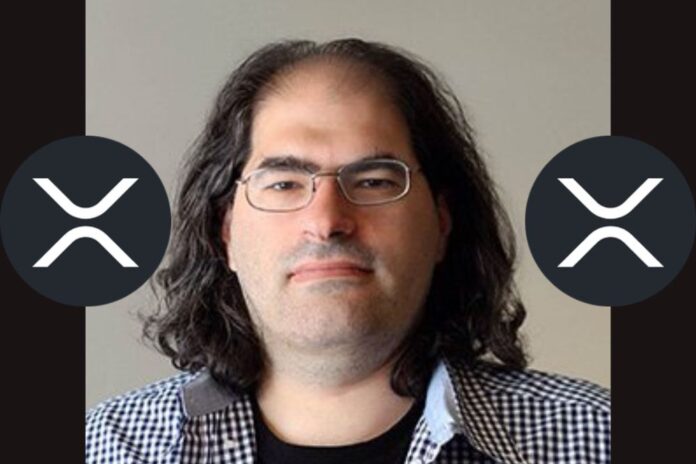David Schwartz, the Chief Technology Officer (CTO) of Ripple, is facing intense scrutiny and backlash from the XRP community following his recent comments defending the 10 XRP reserve fee required to activate accounts on the XRP Ledger (XRPL).
The debate has gained significant traction as community members express concerns about the fee’s impact on adoption and propose alternative solutions
Read Also: Ripple CTO David Schwartz Reveals Compelling Facts About Bitcoin (BTC)
The Fee Controversy
The controversy surrounding the XRPL reserve fee was reignited when SpendTheBits, an XRPL-based payment solution, questioned the necessity of the fee and its potential hindrance to wider adoption. The post sparked a heated discussion within the community, with many expressing support for lower or no fees at all.
#XRPCommunity As many of you are aware, there's a requirement for the fee reserve for activating #XRPL accounts. We'd like input from the community: What do you think the appropriate fee for activating a #XRPLedger wallet should be? Please vote & share your thoughts in the…
— SpendTheBits Inc. (@Spend_The_Bits) November 14, 2023
Schwartz’s Defense
In response to the community’s concerns, David Schwartz defended the reserve fee, highlighting its crucial role in preventing spam and maintaining the integrity of the XRPL network. He emphasized that the fee acts as a financial deterrent and provides users with an account, an owner directory, and other essential objects on the XRPL.
Schwartz clarified that users are not directly charged the reserve fee, instead, it is used to cover transaction fees and can be recovered by removing objects or deleting the account.
To illustrate this point, he referenced the recent example of Poloniex, a cryptocurrency exchange that deleted over 85,000 XRP accounts, successfully recovering $1.5 million in fees.
Either their accounts are not as heavy as XRPL's or they charge the fees in some other way. For example, most ethereum chains charge you when you store data. An XRPL account reserve gives you an account, an owner directory, and two other objects.
You aren't even really charged…
— David "JoelKatz" Schwartz (@JoelKatz) November 15, 2023
Alternative Solutions Proposed
Despite Schwartz’s explanation, some members of the XRP community remain unconvinced and continue to advocate for alternative methods to prevent spam without creating a financial barrier for new users.
Chris Larsen, an XRPL consultant, suggested exploring the use of Decentralized IDs (DIDs) to verify unique human identities, thereby reducing the need for a high reserve fee. While acknowledging that DIDs are still in development, Larsen believes they could offer a viable solution in the future.
In response, Schwartz acknowledged the potential of DIDs but cautioned that issuing them does not inherently prove a unique human identity. He cited Worldcoin’s approach as an example of a potential solution but also acknowledged the challenges of verifying unique identities in a decentralized manner.
Anyone can issue any number of DIDs to anyone. The ledger has no idea whether a DID proves that you're a unique human being or not. There are really no good decentralized ways of proving you're a unique human known yet. That's why Worldcoin does what it does.
— David "JoelKatz" Schwartz (@JoelKatz) November 15, 2023
Read Also: Ripple CTO David Schwartz: Higher XRP Prices Will Bring About Cheaper Payments
Striking a Balance
The ongoing debate surrounding the XRPL reserve fee highlights the delicate balance that blockchain networks must strike between preventing spam and encouraging widespread adoption.
As XRPL continues to evolve, finding a solution that satisfies both sides of the argument will be crucial for its long-term success.
The XRP community remains divided on the issue, with some advocating for the preservation of the current reserve fee system and others pushing for alternative approaches.
As the debate intensifies, it underscores the need for open dialogue and collaboration to find a solution that addresses the concerns of all stakeholders while ensuring the network’s security and usability.
Follow us on Twitter, Facebook, Telegram, and Google News



